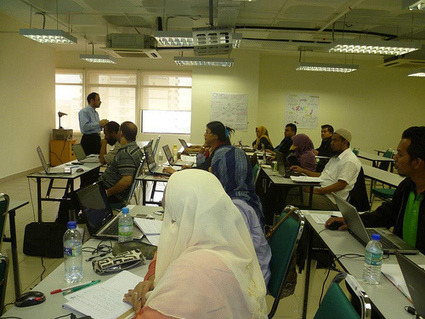Literature reviews are in great demand in most scientific fields. Their need stems from the ever-increasing output of scientific publications [1]. For example, compared to 1991, in 2008 three, eight, and forty times more papers were indexed in Web of Science on malaria, obesity, and biodiversity, respectively [2]. Given such mountains of papers, scientists cannot be expected to examine in detail every single new paper relevant to their interests [3]. Thus, it is both advantageous and necessary to rely on regular summaries of the recent literature. Although recognition for scientists mainly comes from primary research, timely literature reviews can lead
to new synthetic insights and are often widely read [4]. For such summaries to be useful, however, they need to be compiled in a professional way [5].
Via Elizabeth E Charles



 Your new post is loading...
Your new post is loading...








